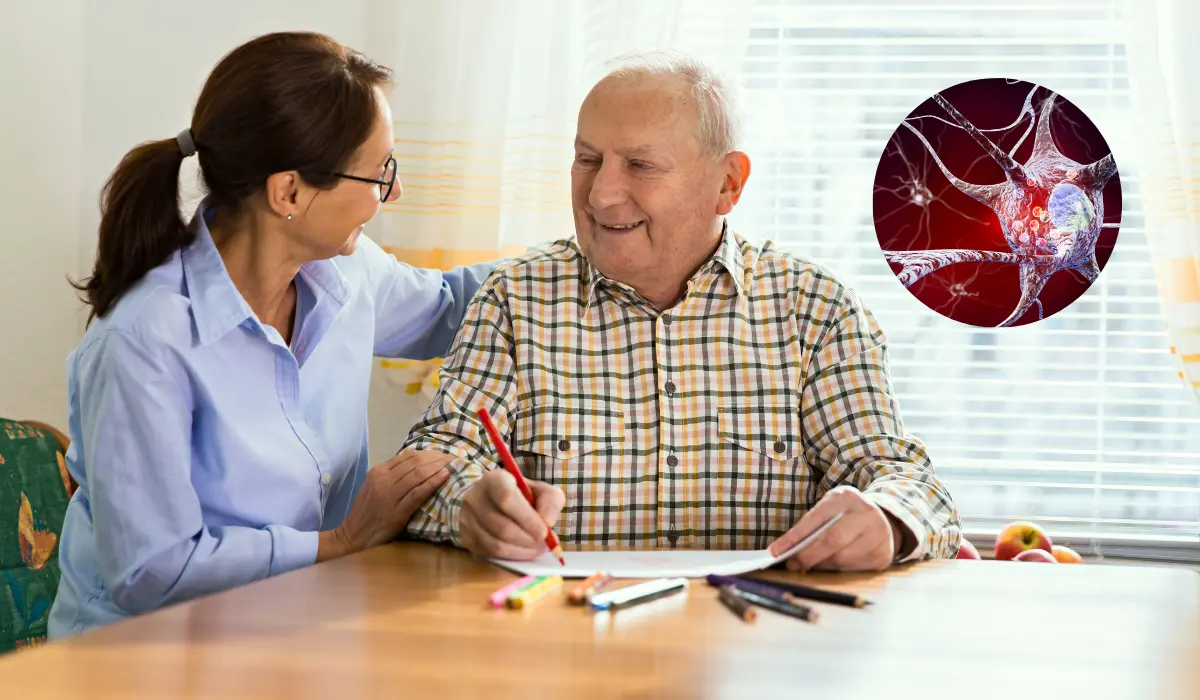Lewy body dementia (LBD) is a complex neurodegenerative disorder that affects cognitive abilities, movement, and behavior. As the disease progresses, individuals with LBD experience a gradual decline in function, which can be categorized into 7 distinct stages. Understanding these stages is crucial for caregivers and loved ones to provide appropriate support and care. In this article, we’ll delve into each 7 stages of Lewy body dementia, offering insights and strategies to help navigate this challenging journey.
Key Takeaways
- Lewy body dementia progresses through 7 stages, each with unique symptoms affecting cognition, movement, and behavior.
- Early stages of LBD may be difficult to detect, while later stages require increasing levels of support and care.
- Caregivers play a vital role in providing a safe and supportive environment, promoting independence, and seeking professional help when needed.

The 7 Stages Of Lewy Body Dementia
- Stage 1: No Cognitive Decline
- Stage 2: Very Mild Cognitive Decline
- Stage 3: Mild Cognitive Decline
- Stage 4: Moderate Cognitive Decline
- Stage 5: Moderately Severe Cognitive Decline
- Stage 6: Severe Cognitive Decline
- Stage 7: Very Severe Cognitive Decline
Stage 1: No Cognitive Decline
In the first stage of Lewy body dementia, individuals do not experience any noticeable cognitive decline. This stage is often undetectable to the person with LBD, their loved ones, and even physicians. It is important to note that while no symptoms are present, the disease process may have already begun in the brain.
Stage 2: Very Mild Cognitive Decline
During stage 2, individuals with LBD may experience subtle changes, such as mild forgetfulness. They may have difficulty remembering names or locating familiar objects. However, these symptoms are often too mild to be noticeable or lead to a diagnosis at this point.
Stage 3: Mild Cognitive Decline
In stage 3, cognitive decline becomes more apparent. Symptoms may include mild memory loss, increased forgetfulness, and a slight decrease in concentration. These changes may be noticeable to family members and close friends, and a diagnosis may be near.
Stage 4: Moderate Cognitive Decline
Stage 4 is often when a formal diagnosis of Lewy body dementia is made, as cognitive decline becomes more evident during medical evaluations. Individuals in this stage may experience life-disrupting forgetfulness and difficulty performing daily tasks. They may struggle with managing finances or navigating to new locations.
Stage 5: Moderately Severe Cognitive Decline
In stage 5, individuals with LBD experience significant memory loss and require assistance with daily activities. They may have difficulty recalling important information, such as their address or phone number. Meal preparation, bathing, and other everyday tasks may become increasingly challenging.
Stage 6: Severe Cognitive Decline
Stage 6 is characterized by severe cognitive decline, and individuals require a high level of support to maintain their quality of life. Memory loss is significant, and patients may only retain memories from their early life. Incontinence is common, and the ability to speak may deteriorate. Personality changes may also occur during this stage.
Stage 7: Very Severe Cognitive Decline
In the final stage of Lewy body dementia, individuals experience very severe cognitive decline. They lose the ability to communicate effectively and may become unable to walk. Extensive assistance is required for all daily activities, and around-the-clock care is often necessary.
Coping Strategies for Caregivers
Caring for a loved one with Lewy body dementia can be emotionally and physically demanding. As the disease progresses, caregivers must adapt their approach to meet the changing needs of their loved ones. Some coping strategies include:
- Educate yourself about LBD and its progression to better understand and anticipate your loved one’s needs.
- Create a safe and supportive environment by minimizing potential hazards and providing comfort.
- Encourage independence and engage your loved one in meaningful activities, adapting as needed.
- Seek support from healthcare professionals, support groups, and respite care services to manage the challenges of caregiving.
According to the Lewy Body Dementia Association, “It is important to remember that people with LBD are not purposefully being difficult; their brains are not allowing them to process information or respond as they would like.”
Also Read: Can Dehydration Cause Abdominal Pain? Understanding The Connection
Conclusion
The 7 stages of Lewy body dementia provide a framework for understanding the progression of this complex disease. By familiarizing themselves with each stage, caregivers and loved ones can better prepare for the challenges ahead and provide the best possible care and support.
Remember, you are not alone in this journey. Reaching out to organizations like the Lewy Body Dementia Resource Center (lewybodyresourcecenter.org) or their helpline at 833-LBDLINE can provide valuable information and support.
FAQ
The duration of each stage varies from person to person. On average, the entire course of the disease can last 5-7 years from diagnosis, but some may live with LBD for over a decade.
While there is no cure for LBD, certain medications and therapies may help manage symptoms and improve quality of life. Maintaining a healthy lifestyle, staying mentally and physically active, and receiving early treatment may also help slow the progression of the disease.
As the disease progresses, communication can become increasingly challenging. Use simple language, maintain eye contact, and provide visual cues when speaking. Be patient, offer reassurance, and focus on the emotional connection rather than the content of the conversation.
Many organizations, such as the Lewy Body Dementia Association and the Lewy Body Dementia Resource Center, offer information, support groups, and resources for caregivers. Local hospitals, community centers, and elder care services may also provide assistance and respite care options.

